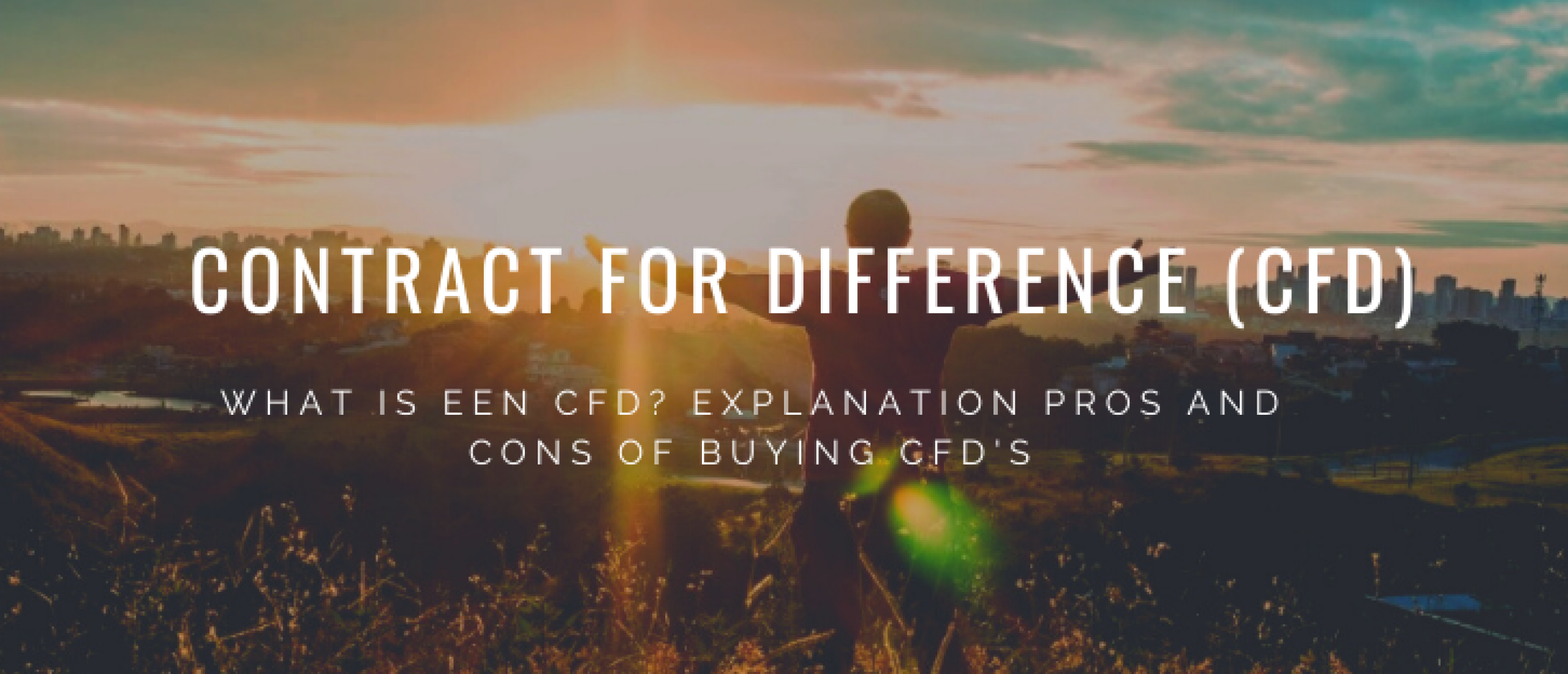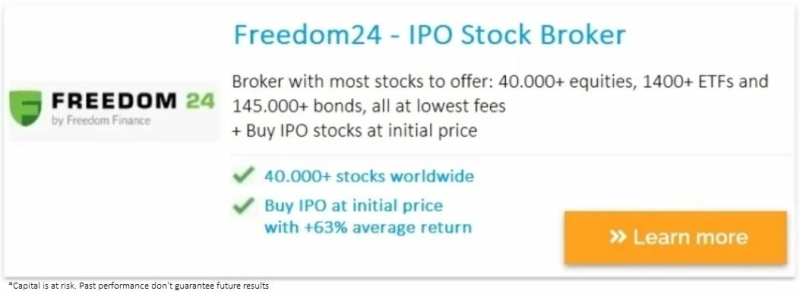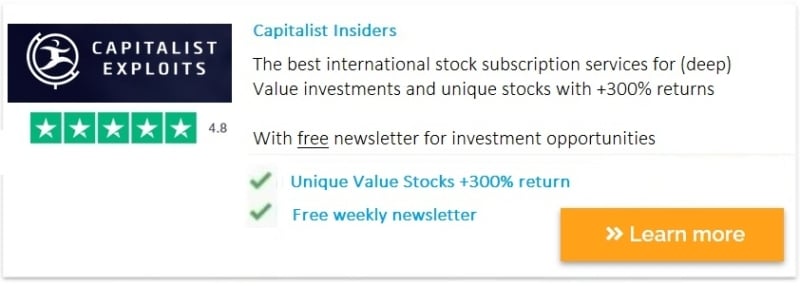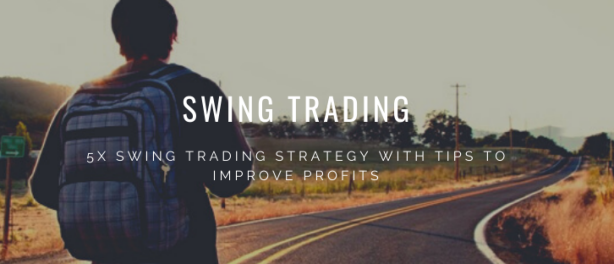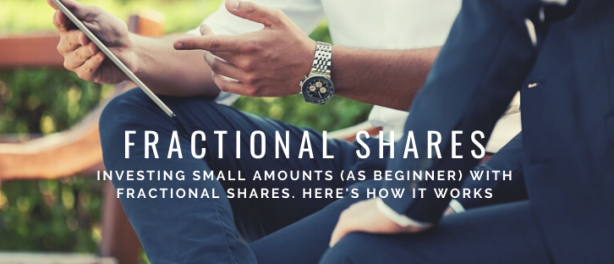Are you considering buying a Contract for Difference (CFD) to invest in stocks, bonds or an ETF? Then think carefully about your choice! In this article we explain the pros and cons. What is a CFD? How does it work? And very importantly, what are the risks involved in buying a CFD? Read this article carefully, because a contract for difference seems simple but is definitely not suitable for novice investors.
On to sustainable financial success!
What is a CFD (Contract for Difference) and how does it works?

CFD’s are a type of derivative that allows investors to speculate on the price of an underlying asset, such as a stock or commodity, without actually buying it. This is done by creating an agreement with another investor to make money off of the difference between the current value of the asset and its future value.
This means that you do not become the owner of a stock, ETF or bond, if you buy it based on a CFD.
When you start a position to buy or sell contracts for differences (CFD), you will be asked to choose the trade size, which refers to the number of contracts that you want to buy or sell. When the market favors you, your profit will increase at the same rate as the market's momentum shifts.
If you believe that the price of an asset will go up in the near future, you should open a long (Buy) position so that you can make money if the price of the asset goes up in the same direction as you anticipated.
If you believe that the price of an asset will decrease in the near future, you can open a short position (also known as a sell position) and make a profit if it does in fact decrease.
How to buy CFD?
Buying a CFD works very simply and is similar to buying a "normal" stock or ETF. Some brokers such as eToro offer CFDs. This means that you are not buying the actual stock, but taking a position on it. Be aware of this. You can then buy a CFD as if you were buying a stock or ETF. Loss or gain will act in the same way, as explained above.
Crucial to CFD investing is to consider levers. You can buy a "normal" CFD on stocks without leverage. But many brokers make it tempting to invest with leverage. For example 1 : 5. In this case, you bet 100 euros and the result goes x5. However, this form of speculation is particularly risky because a loss outweighs a gain (if a stock falls by -10% your result is -50%. From that point you need +100% profit to break even at all).
Pros and Cons of what a CFD is
You now know what a CFD is. Then the question is: is CFD investing wise? Below we highlight some of the advantages and disadvantages. For novice investors, we recommend just buying "normal" stocks based on a long-term strategy. Buy the best stocks (without CFD) and hold for the long term.
CFDs have the following advantages
Liquidity:
CFD prices directly reflect what is going on in the underlying market. This means that CFDs give you access to the entire market's liquidity in addition to the liquidity provided by the CFD provider.
Tradeable on Margin:
Because CFDs are a leveraged product, you simply need to deposit a fraction of the total amount of the trade (usually 5-10% for shares and 1% for indices). This helps you to increase your returns and market exposure.
Due to the inherent leverage, you can obtain 10 times the outcomes (if not more) from a trade for a similar and usually lower cost each trade. Because there is no need to invest the whole value of the shares, this results in a more efficient use of your capital.
Tax efficient trading:
Gearing can also bring tax benefits because the costs of investing, such as interest repayments, are often deductible. Furthermore, rather than crystallizing a potentially taxable capital gain in a share position, an investor can sell a CFD and so determine how the capital gain is realized.
Transparency and simplicity of execution:
Trading or investing with CFDs is nearly identical to trading or investing with shares. Because one share usually equals one CFD, they are not difficult to use.
Trade long or short with equal convenience
This enables traders to profit from a declining market by exploiting share price drops. Since the CFD trade is based on how the price of a financial asset moves instead of who owns it, selling is just as easy as buying and works the same way.
Prior to the introduction of CFDs, the only way to sell a stock short was through a traditional stockbroker, who would normally demand additional costs on top of the standard brokerage. Short CFD positions, on the other hand, are often paid interest by your CFD provider.
Ability to trade foreign markets from a single account:
Many CFD providers offer CFDs on international shares as well as items you typically cannot trade such as gold, silver, oil, indices, sectors, commodities, treasuries, and so on. This allows traders to diversify their investments across their portfolio more.
Hedge Mode:
CFDs enable you to hedge your existing stock portfolio by selling short individual shares, leading indexes, and sector indices without selling your stock.
For example, investors can use a CFD to hedge an existing long physical position in a stock by profiting from any short-term price dips while safeguarding their portfolio from short-term price drops.
Buying CFDs has advantages, but it can also be risky for novice investors. Especially when investing in stocks, which is risky in itself.
CFDs have the following disadvantages

Leverage is a two-edged sword:
Margin trading, for example, implies that your potential earnings are magnified, but it is also crucial to remember that your losses are magnified, therefore it is critical to use good money-management practices.
Trading CFDs is riskier than trading stocks:
Even though you do not have to deposit the entire amount, you may lose your initial margin, and if the market moves against you, you may be required to fulfill a margin call, in which case you must either contribute more cash or sell assets. Short positions expose investors to possibly limitless loss.
Growing Interest Charged:
Overnight funding is available for positions held overnight (this consists of a daily charge based on the size of the contract and is linked to Libor). Long transactions kept over an extended period of time earn growing interest payments.
The interest charged on long positions held over lengthy periods of time (6 months or more) can dramatically diminish the effectiveness of returns in many circumstances, making the leverage obtained equal to buying a contract or share entirely in the market.
Interest is payable on the entire transaction:
In contrast to margin lending (or any other kind of share gearing), the contracts for difference trader must pay interest on the whole transaction market exposure, regardless of the margin given.
Margin Call Risk:
Contracts for difference contain a collateral requirement, which implies that open positions are 'marked to market,' and if the position moves against you, it reduces your cash balance. If there is insufficient collateral on the account to cover open position losses, the trader will be subject to a 'margin call,' which means you will have to deposit additional funds into the account (or close the position).
Inflexible leverage levels:
The margin level applicable to each market is defined by the CFD supplier. The trader must accept this leverage level and devise risk management methods based on it.
This leverage level can be altered as needed by the CFD provider; consequently, if the CFD broker increases the margin requirement mid-trade, the trader may be compelled to deposit extra margin funds to prevent being closed out.
No Rights as Shareholder:
As there is no actual ownership of the underlying asset, a CFD investor has no rights as a shareholder (which implies no voting rights or say in the company). If an investor establishes a short CFD position, he is obligated to pay out the whole dividend amount if he retains his short position through the record date.
Why you should not buy CFD’s: explanation of risks

You now know what a CFD is. That it is in fact a complex financial construction with specific advantages and disadvantages. And that buying CFDs is definitely not for beginners. The risk is much higher, especially since investments can be made using levers.
In simple language: when you buy a stock, you run a risk. You can lose your entire stake (worst case). But not more than that. And you are not obliged to buy or sell.
When buying a CFD, on the other hand, the worst-case scenario is much worse. Not only can you lose your entire stake. In that case you may also be required to deposit additional money because of the negative balance. In addition, you will be charged interest.
In short: you can lose a lot more than you want. And the golden rule in investing is: only invest money that you can miss 100%.
Leverage risks in CFDs
Instead of buying 10,000 euros worth of shares, you can put down a 10% margin to buy the same 10,000 euros worth of shares.
In this example, with a leverage ratio of 10 to 1, you would only have to invest 1000 euros. The larger the leverage ratio, the less money is required as margin. With a leverage ratio of 10 to 1, you can gain up to ten times the value of your capital investment - but you can also lose money just as easily.
Often things go well, until they don't.
This is also why speculating through forex brokers is so risky. They often work with CFDs for currencies, where the leverage can be as high as 1 : 500. Do the math...
Debt risk in CFDs
While the prospect of gaining real money may be exciting, the leverage effect can quickly transform that dream into a nightmare. Even a seemingly minor market loss can swiftly drain your capital investments. Worst of all, if the loss exceeds your deposit, you will have to pay the difference out of your own cash.
If you have CFD positions open overnight or over the weekend for whatever reason, things might turn nasty. If interest rates fall dramatically during that time, your losses could be massive.
Counterparty risk in CFDs
The stock exchange acts as the counterparty in a regulated trading environment. A major stock exchange going bankrupt is extremely unlikely, hence your counterparty's failure to meet its end of the contract is extremely unlikely.
However, when you engage in poorly regulated CFD trading, this risk becomes much more real. There are numerous smaller brokers who provide their services online.
Unfortunately, there are always a few bad apples among them who do not adhere to best practices and lead to bankruptcy.
In the worst-case scenario, a broker's bankruptcy may result in the loss of all CFD investment capital invested with them.
That is why it is critical to conduct thorough research, carefully compare, and select a reputable CFD broker before making any investments.
Final notes
Whatever you invest in should meet your investing goals and be appropriate for your scenarios. CFDs, as a leveraged instrument, are inherently risky.
CFDs are not appropriate for everyone. Our message to investors is simple: don't invest if you don't understand contracts for differences.
Nobody can guarantee the success of any financial product. If something goes wrong, you could lose all of your money or perhaps more.
If you put all of your money into one form of investment, you are taking a significant risk. Spreading your money among many types of investments ('diversification') minimizes the danger of losing it all.

